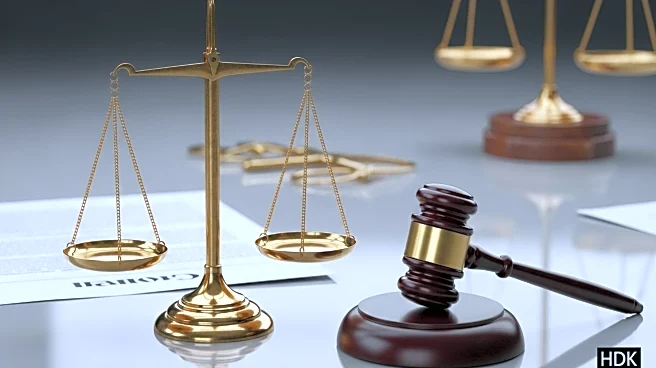What's Happening?
Dominion Voting Systems has reached a confidential settlement with Rudy Giuliani, former attorney for President Trump, in a $1.3 billion defamation lawsuit. The lawsuit, filed in January 2021, accused Giuliani of spreading false allegations about Dominion's role in the 2020 presidential election. The settlement follows a similar agreement with another Trump attorney, Sidney Powell. A court filing indicated that both parties are seeking a voluntary dismissal of the case, with each bearing their own legal costs. The lawsuit claimed Giuliani's actions were part of a campaign to enrich himself through legal fees and his podcast, while Dominion sought to hold him accountable for the spread of misinformation.
Why It's Important?
The settlement is a pivotal moment in the ongoing legal battles surrounding the 2020 election and the dissemination of false information. It highlights the consequences faced by individuals and entities involved in spreading election-related misinformation. For Dominion, the settlement represents a step towards restoring its reputation and holding accountable those who propagated falsehoods. The case underscores the importance of legal accountability in combating misinformation and protecting the integrity of electoral processes. Giuliani's settlement may influence other pending defamation cases and could deter similar actions by public figures in the future.
What's Next?
With the settlement reached, the case against Giuliani will likely be dismissed, concluding a significant chapter in Dominion's legal efforts to address defamation. The resolution may prompt other parties involved in similar lawsuits to seek settlements, potentially leading to a wave of legal closures. Dominion's actions could inspire other companies affected by misinformation to pursue legal remedies. The broader impact may include increased scrutiny of public statements by political figures and a push for more responsible communication practices.
Beyond the Headlines
The settlement raises broader questions about the role of misinformation in political discourse and its impact on public trust. It may lead to discussions on the need for stronger legal frameworks to address defamation and misinformation. The case also highlights the ethical responsibilities of public figures in ensuring accurate and truthful communication. Long-term, this development could contribute to a shift towards more transparent and accountable practices in political and media environments.









